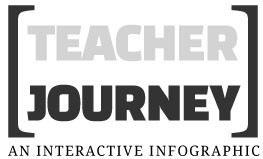Outside English departments it still isn’t a priority, report finds
The aspiration that teachers of all subjects should help drive up literacy is a long way from being realised, according to a report by Education Scotland.
Although Curriculum for Excellence makes it clear that this objective should be a priority shared beyond English departments, schools are missing many opportunities to raise literacy standards in other subject areas, the report says.
“Schools are still not yet fully recognising the impact that literacy has on learning and achievement across all curricular areas,” the authors of the 3-18 Literacy and English Review (bit.ly/LiteracyReport) write. This is despite seven years having passed since a seminal 2008 report by HM Inspectorate of Education emphasised how a focus on developing literacy skills could “unlock learning across the curriculum”.
Missed opportunities
The Education Scotland report acknowledges that young people now have more opportunities to improve their literacy in different areas of the curriculum and staff are aware they have a duty to promote this. But it adds: “Across all sectors, there are still too many missed opportunities to develop and extend children’s and young people’s literacy skills and deepen learning.”
The most impressive examples of progress are too often confined to English lessons, the report insists. Pupils need more opportunities to improve their writing in other parts of the curriculum, it says, adding that outside English classes they often feel unclear about the progress they are making in literacy.
“There is a need for staff across all subject areas to highlight literacy skills more clearly to young people,” the report says. It cites examples of schools that lead the way, such as Edinburgh’s Liberton High School, where librarian Christine Babbs has been central in promoting a reading culture (see panel, left).
Edinburgh literacy development officer Emma Easton said it was crucial to avoid the pitfall of “focusing purely on the mechanics of reading rather than enjoyment”.
The city had made efforts to apply literacy expertise as far and wide as possible, Ms Easton said. In one school, teachers of English as an additional language worked with science students – not because many pupils spoke another language but because the teachers’ skills might be useful for science writing.
Headline work
The report also lists extracurricular activities that can boost literacy, including school newspapers, debating clubs, Burns competitions, film clubs, charity work and enterprise projects. Only a few schools, however, appear to be helping pupils consider how these activities improve their literacy. Because they tend to be voluntary, the fear is that not all students benefit.
“The report has confirmed that there is much good practice in literacy and English in Scotland’s schools,” the authors conclude. “However, there is still much work to be done to ensure that all children and young people leave school with the highest possible levels of attainment in literacy and English.”
The findings were backed by learning minister Alasdair Allan, while Education Scotland chief executive Bill Maxwell said that better literacy would not only improve attainment but “reduce inequity and improve life chances”.
One English teacher told TESS: “In general there’s still an expectation that the English department will deal with literacy, and I guess there’s a certain logic to this. I do think progress is being made, but there’s still work to do.
“For example, where subjects teach similar skills, such as essay writing, I think there should ideally be consistency in how to approach this. That’s not always the case, and pupils are having to learn to write essays differently in English than in history.”
The nation’s problems with literacy have been highlighted by the Programme for International Student Assessment (Pisa) league tables, which in 2009 found that the link between poverty and lower levels of reading for enjoyment was stronger in Scotland than in almost any other country.
Last month, TESS reported a claim made by David Watt, executive director of the Institute of Directors, that literacy league tables for Scottish schools would be more useful than exam league tables.
Words to the wise
Liberton High School in Edinburgh is keen to promote a love of books and a focus on literacy among its students. Headteacher Stephen Kelly says that highlights on the calendar include a Harry Potter night and a “highly anticipated” annual book week driven by school librarian Christine Babbs.
He argues that such events have helped pupils to realise that “reading and being creative is for everyone”. And where Mr Kelly and his fellow maths teachers would once have been intimidated by literacy, it now holds few fears for staff, he says.
Teachers agree that “higher-order literacy skills” are essential to narrow attainment gaps in all subjects, Mr Kelly adds.
TES website





